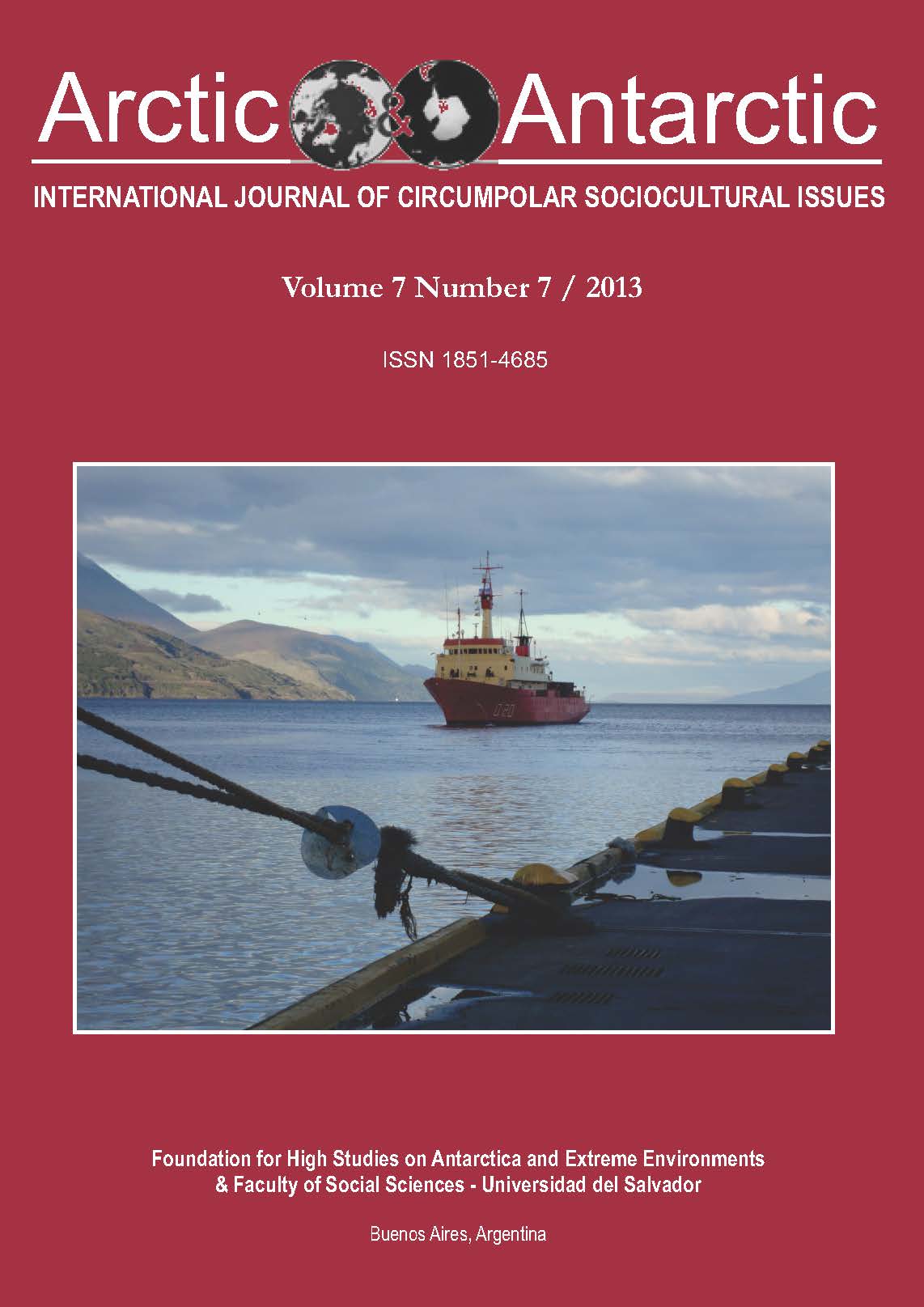Replacement or extension? Changes in the economy of the Selk’nam hunter-gatherer groups of central Isla Grande de Tierra del Fuego in the XIXth Century
Vanesa Parmigiani, Hernán De Angelis & María Estela Mansur (CADIC-CONICET, Argentina)
Tierra del Fuego has a large documentary register concerning the original huntergatherer societies as well as the arrival of European sailors, since the sixteenth century, and the establishment of settlers since mid-nineteenth century. The archaeological record lets verify changes and continuities in aboriginal way of life during the forced contact period, until the disappearance of Indian societies. In this paper we discuss two aspects that we could analyze from the archaeological record of Ewan site: utilization of new raw materials and new faunal resources.
Gender display in a lifestyle magazine in Iceland (1978 to 2009)
Bára Jóhannesdóttir Guðrúnardóttir & Ingólfur V. Gíslason (University of Iceland)
One of the marks of gender roles in each society is the way men and women are portrayed in popular culture and advertisements. A number of studies exist that explore this theme, one of which is Goffman’s study from 1979, Gender Advertisements. The study presented here takes Goffman’s analytical framework as its starting point and looks at the presentation of women in pictures in an Icelandic lifestyle magazine over a period of thirty years. The main results are that women have increasingly been portrayed as socially independent and they are more often shown without clothes and objectified. This suggests that as traditional social indicators of femininity and masculinity have become blurred, there is an increased focus on the body as the definition of femininity.
Constructing an Indigenous Model of the Self to Address Cultural and Mental Health Issues in the Canadian Subarctic
Alfonso Marquina-Márquez (University of Granada, Spain), Jorge Virchez (University of Laurentian, Canada) & Raúl Ruiz-Callado (University of Alicante, Spain)
Since the last decades, academic research has paid much attention to the phenomenon of revitalizing indigenous cultures and, more precisely, the use of traditional indigenous healing methods both to deal with individuals’ mental health problems and with broader cultural issues. The re-evaluation of traditional indigenous healing practices as a mode of psychotherapeutic treatment has been perhaps one of the most interesting sociocultural processes in the postmodern era. In this regard, incorporating indigenous forms of healing in a contemporary framework of indigenous mental health treatment should be interpreted not simply as an alternative therapeutic response to the clinical context of Western psychiatry, but also constitutes a political response on the part of ethno-cultural groups that have been stereotyped as socially inferior and culturally backward. As a result, a postmodern form of “traditional healing” developed with various forms of knowledge, rites and the social uses of medicinal plants, has been set in motion on many Canadian indigenous reserves over the last two decades.
A bilateral free trade agreement between China and Iceland as a European country
Örn D. Jónsson (University of Iceland), Ingjaldur Hannibalsson (University of Iceland) & Yang Li (Sichuan International Studies University, Chongqin, China)
A Free Trade Agreement (FTA) between China and Iceland was signed on the 15th of April 2013. The paper discusses the negotiation process and the actual business activities in the respective countries, focusing on the FTA’s socioeconomic significance. Our study is for the most part an empirical one, an overview of the free trade negotiations, procedures and the topics covered along the issues and the actual activities on the firm level. From the outset in 2004–2005 and up until the negotiation process, the project has had strong political connotations with its geopolitical location but by the time it was finalized, it turned out to be first and foremost a bilateral trade agreement between two nation states.
Urban youth and risk. The case of the young inhabitants of the City of Buenos Aires (A diachronic analysis)
Ana María Mendes Diz (CONICET/University of Buenos Aires)
This research paper looks into the interrelations within the contextual changes taken place during the last decades in the Western world, in Latin America and specifically in Argentina and the city of Buenos Aires and focuses on the tensions resulting from the processes towards the constitution of juvenile identities. Transformations in the concepts of youth and the risk in the Western metropolis will be analysed and the differences explored between the relative forseeability granted to the biographies by their links to institutions in salaried societies and the situation urban youngsters currently face in the so called risk societies in which, as never before, they are driven to individualize. Risk among young inhabitants in the city of Buenos Aires is studied through time, focusing on their ideas, attitudes and behavior under tension when measured against the society where they live.

